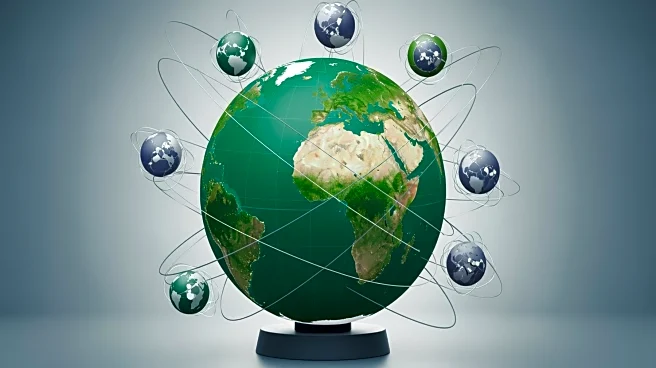What's Happening?
World leaders are convening in Belém, Brazil, for the COP30 climate talks, where discussions are centered around addressing the global climate crisis. The conference has highlighted differing approaches
among leaders, with the Prince of Wales advocating for 'urgent optimism' and UK leader Sir Keir Starmer acknowledging a lack of consensus on climate action. A significant point of contention is a proposed $125 billion fund aimed at preserving tropical forests, which Starmer has declined to support financially due to the UK's cost-of-living crisis. This decision contrasts with Prince William's endorsement of the fund as a major initiative for forest protection. The conference also sees the absence of key figures like President Trump and China's President Xi Jinping, both of whom are not attending.
Why It's Important?
The COP30 conference is crucial as it brings together global leaders to discuss strategies for combating climate change, a pressing issue with widespread implications. The lack of consensus and financial commitment from major economies like the UK could hinder progress in global climate initiatives. The absence of leaders from the world's largest emitters, such as the United States and China, further complicates efforts to achieve a unified approach. The decisions made at COP30 could significantly impact international climate policies, affecting environmental regulations, economic strategies, and the global commitment to reducing carbon emissions.
What's Next?
The outcomes of COP30 will likely influence future international climate agreements and funding allocations for environmental projects. The response from environmental groups and other nations to the UK's stance on the forest fund will be critical in shaping future negotiations. Additionally, the absence of key leaders may prompt discussions on how to engage major emitters in future climate talks. The conference's results could also affect public opinion and political pressure on governments to take more decisive action against climate change.
Beyond the Headlines
The COP30 discussions underscore the ethical and moral dimensions of climate change, highlighting the disparity between nations most responsible for emissions and those most affected by climate impacts. The conference also raises questions about the role of developed nations in supporting developing countries through financial aid and technology transfer. Long-term, the success of initiatives like the tropical forest fund could set a precedent for future environmental conservation efforts and international cooperation.









